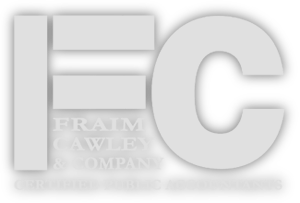Leslie: “No Ann, please. I beg of you. Will you just shut your beautiful pie-hole? Just sit there, let me stare at you while you silently support me on this game plan.”
Ann: “Leslie…”
Leslie: “Shh, Ann! Your quiet support means the world to me, as well as your tacit endorsement of all my behaviors.”
– From an episode of the TV show Parks and Recreation
Over the past decade or so there has been a huge influx of professional coaches. They provide advice on every single aspect of life imaginable: business, health, lifestyle, organization, etc. You name it and there is a coach for it.
At their best they can be some of the best resources available – especially to a business owner. They bring in true expertise, set goals, provide accountability, and can use their knowledge to make adjustments in a business.
That is of course assuming they actually have expertise. But as my friend (and sales coach extraordinaire!) Mike Garrison often says, many of them end up being a “Rent-A-Friend”. They’ll be there for you, tell you you’re amazing, and assure you that you can accomplish anything you want…but rarely really say anything of substance.
Their advice mostly ends up being generic and general purpose “guidance.” It is done to make you feel good about yourself, but little more. And when any advice is provided, it is notably vague. These coaches can never be accused of having given bad or wrong advice…because what they said is so open to interpretation that you are actually the one determining what they meant.
It reminds me of the “Noh smile” mentioned in the book Memoirs of a Geisha. The protagonist – the geisha Sayuri – was entertaining one of her patrons. The man mentioned visiting a small fishing down called Yoroido, which was Sayuri’s hometown. This conversation followed:
“Yoroido?” he said.” You can’t mean it.”
I long ago developed a very practiced smile, which I call my “Noh smile” because it resembles the Noh mask whose features are frozen. Its advantage is that men can interpret it however they want; you can imagine how often I’ve relied on it. I decided I’d better use it just then, and of course it worked. He let out all his breath and tossed down the cup of sake I’d poured for him before giving an enormous laugh I’m sure was prompted more by relief than anything else.
“The very idea!” he said, with another big laugh. “You, growing up in a dump like Yoroido. That’s like making tea in a bucket!” And when he’d laugh again, he said to me, “That’s why you’re so much fun, Sayuri-san. Sometimes you almost make me believe your little jokes are real.”
It’s actually a pretty genius position to put yourself in, isn’t it? If you never actually give advice or come up with a plan, you can never be wrong.
Again, true mentors and coaches are invaluable. But find someone with the willingness to go out on a limb and give real suggestions and advice. And to be able to do these things effectively, they will normally have a specialization. They can’t be an authority if they try to do everything. If they provide a bunch of ambiguous assurances and feel-good platitudes, it’s best to stay away.
But even when the advice is specific, it’s a good practice to take a look at the person giving it to see if their coaching really is coming from an expert. That’s the topic we’ll cover in our next article.
Any accounting, business, or tax advice contained in this communication, including attachments and enclosures, is not intended as a thorough, in-depth analysis of specific issues, nor a substitute for a formal opinion, nor is it sufficient to avoid tax-related penalties.




